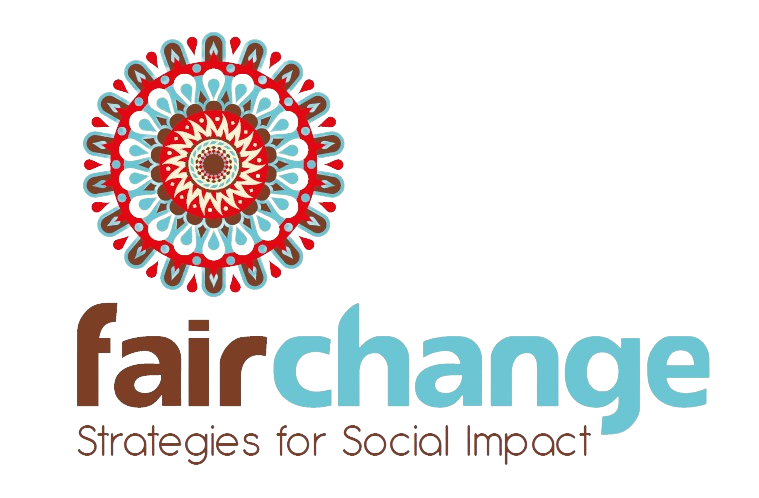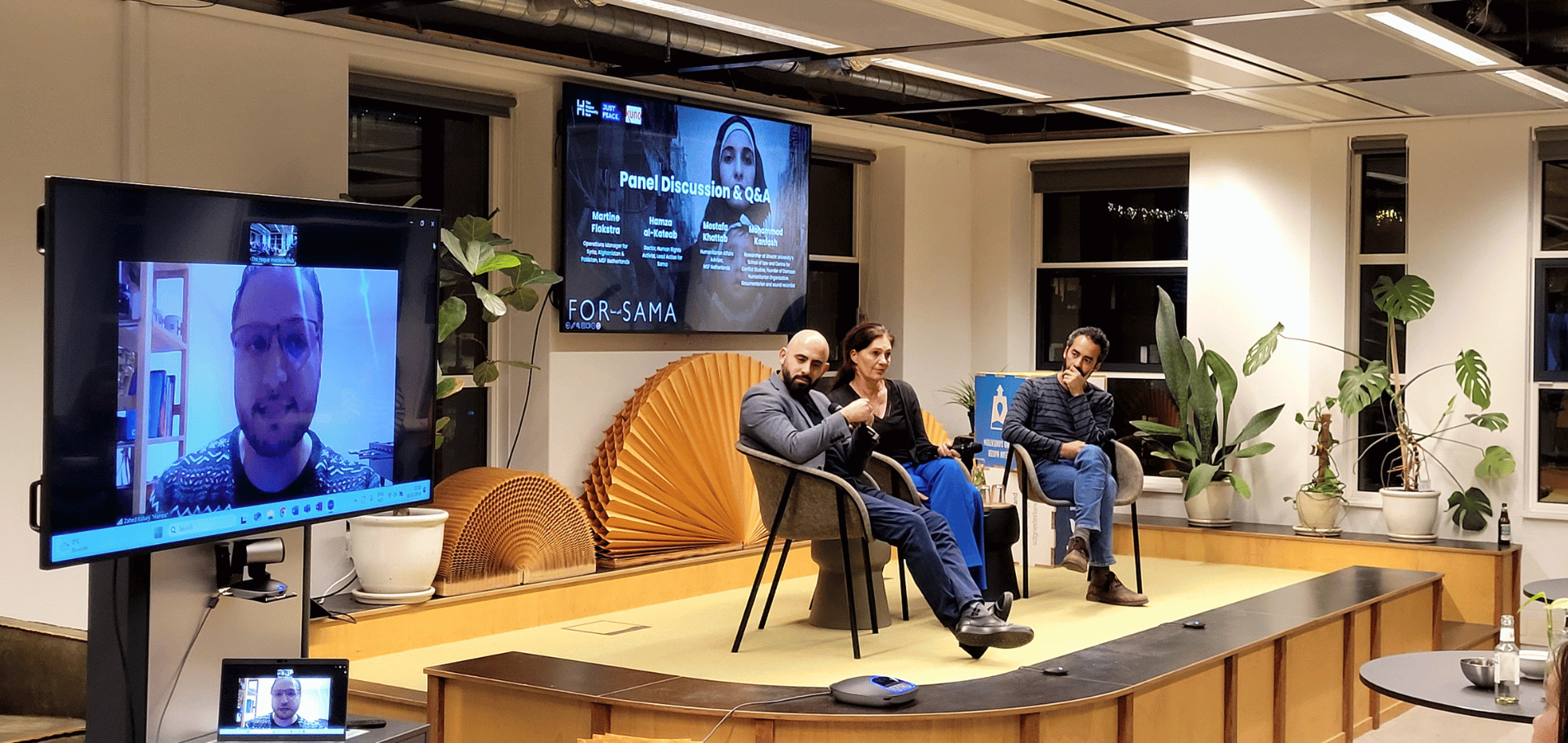Good and trustworthy journalism plays a crucial role in defending human rights. Especially where societies are devastated by war and democracy is crushed by authoritarianism, journalists deserve our utmost respect. The Syrian documentary For Sama is a breathtaking account of the courage and perseverance of a citizen reporter who risks it all to bring the truth out.
“Will you forgive me, Sama?”
This question by Syrian filmmaker Waad al-Kateab to her baby daughter is the culmination of the contradictions faced by a loving mother who is also a rebel for freedom in a bloody war. Although she and her husband Hamza, a medical doctor, have the chance to build a life in safety for themselves and their newborn, they decide to stay.
Documenting the uprising against Assad’s repression
Her award-winning film “For Sama” is breathtaking. It was screened on the occasion of International Human Rights Day (10 December 2024) by KUNO, a network of humanitarian professionals in the Netherlands, at The Hague Humanity Hub.
Recorded with a handheld camera by Waad, an economics student turned journalist, it documents daily life over five years of the uprising against Assad’s repression.
It is a rare account of the gruesome impacts of war on innocent citizens. It’s also the captivating love story of Waad and Hamza, who have their first baby amidst bombing and destruction.
Worth the sacrifice
Although I’ve never lived the life of a human rights fighter myself, I’ve worked with many. I recognize the fear and the guilt, the dilemmas, and the decisiveness of those brave women and men who continue their struggle despite having children whose lives are at risk.
Or is it because of them? As Waad says at some point in her film, the promise of a future where her daughter can live in freedom is worth all the sacrifice.
Unexpected end to Assad’s regime
As the night was programmed a month ahead of Human Rights Day, the panel debate after the film took an unexpected turn. Assad’s regime had fallen just four days earlier, taking the world by surprise. This included the panelists, Martine Flokstra and Mostafa Khattab (Médecins Sans Frontières Netherlands), and moderator Mohammad Kanfash (Researcher at the Utrecht University School of Law and Centre for Conflict Studies and founder of Damaan Humanitarian Organization).
With in-depth knowledge and on-the-ground experience in Syria, they tried to predict the course of events now that a rebel coalition ousted Assad from power.
Hamza al-Kateab joined via live-streaming from the UK, where he and Waad now live as refugees with their two daughters.
Refugees facing a new dilemma
In this new reality, Hamza pointed out how they face another dilemma. When can they go back, and where to? Sama is nine years old now. She and her younger sister Taima have grown up in the UK. Syria is an unknown country to them, where foreign people speak a strange language.
The UK government is eager to send Syrian refugees back as soon as it can, just like our own Dutch government and others. But Syria is in ruins and unsafe, its political future uncertain.
Hamza says he is confident that one day, their country can be a new home. But not overnight. The dictator is gone, but the scars he left will take decades to heal.
Watch For Sama if you have the chance, either via online streaming services or whenever it is screened near you.
Join Action For Sama, launched alongside the worldwide release of the documentary, to inspire awareness, accountability and action for Syria.

